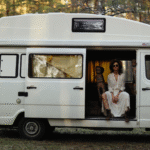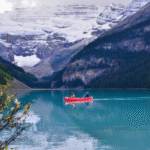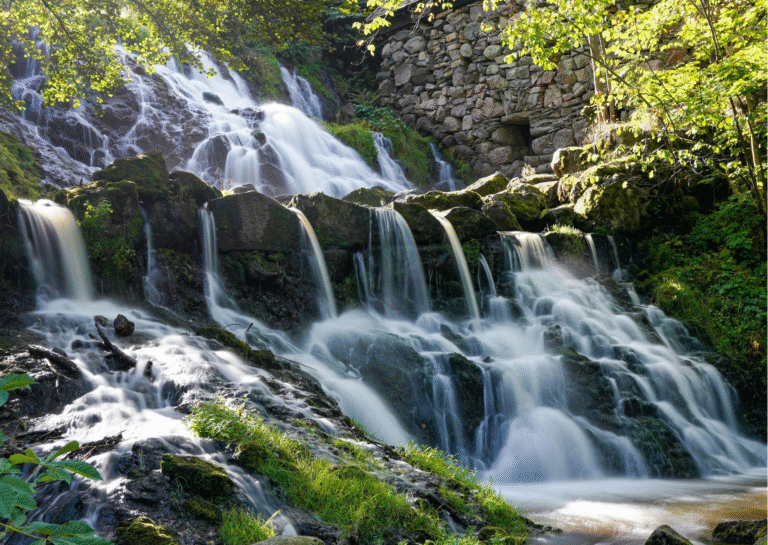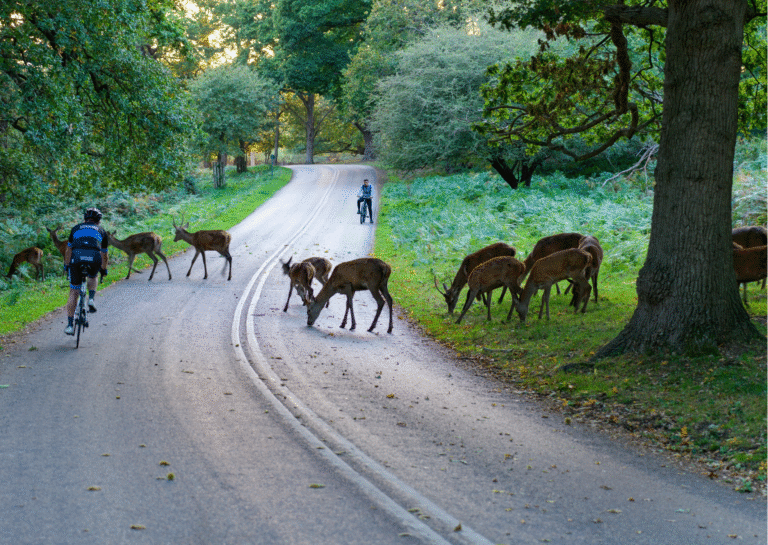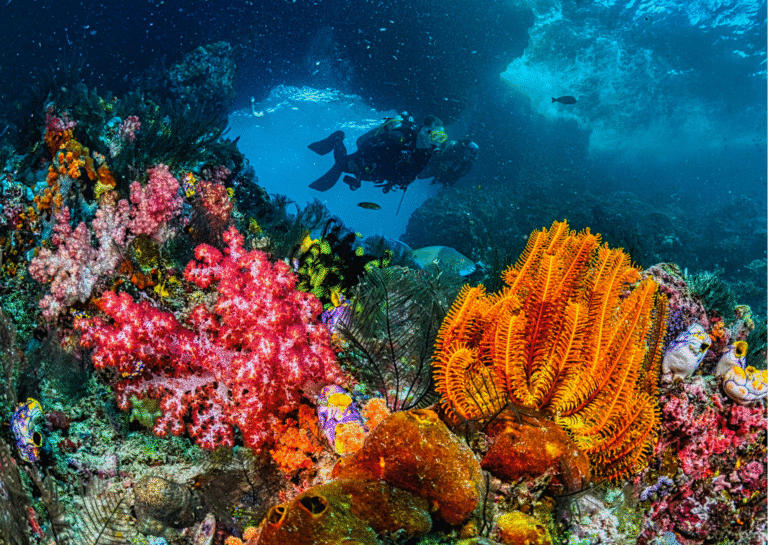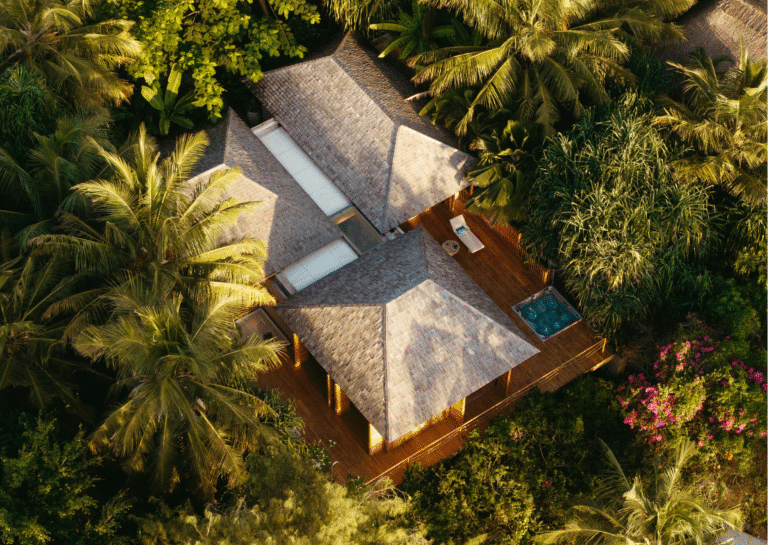Instead of the noise of city traffic, imagine waking up to the soft sway of the ocean, the sun shining off the endless blue, and the sound of soft waves. It's no longer a dream; it's the new way to travel in style. Floating hotels have slowly become more popular, changing how people enjoy both …
The Rise of Floating Hotels and Where to Find Them
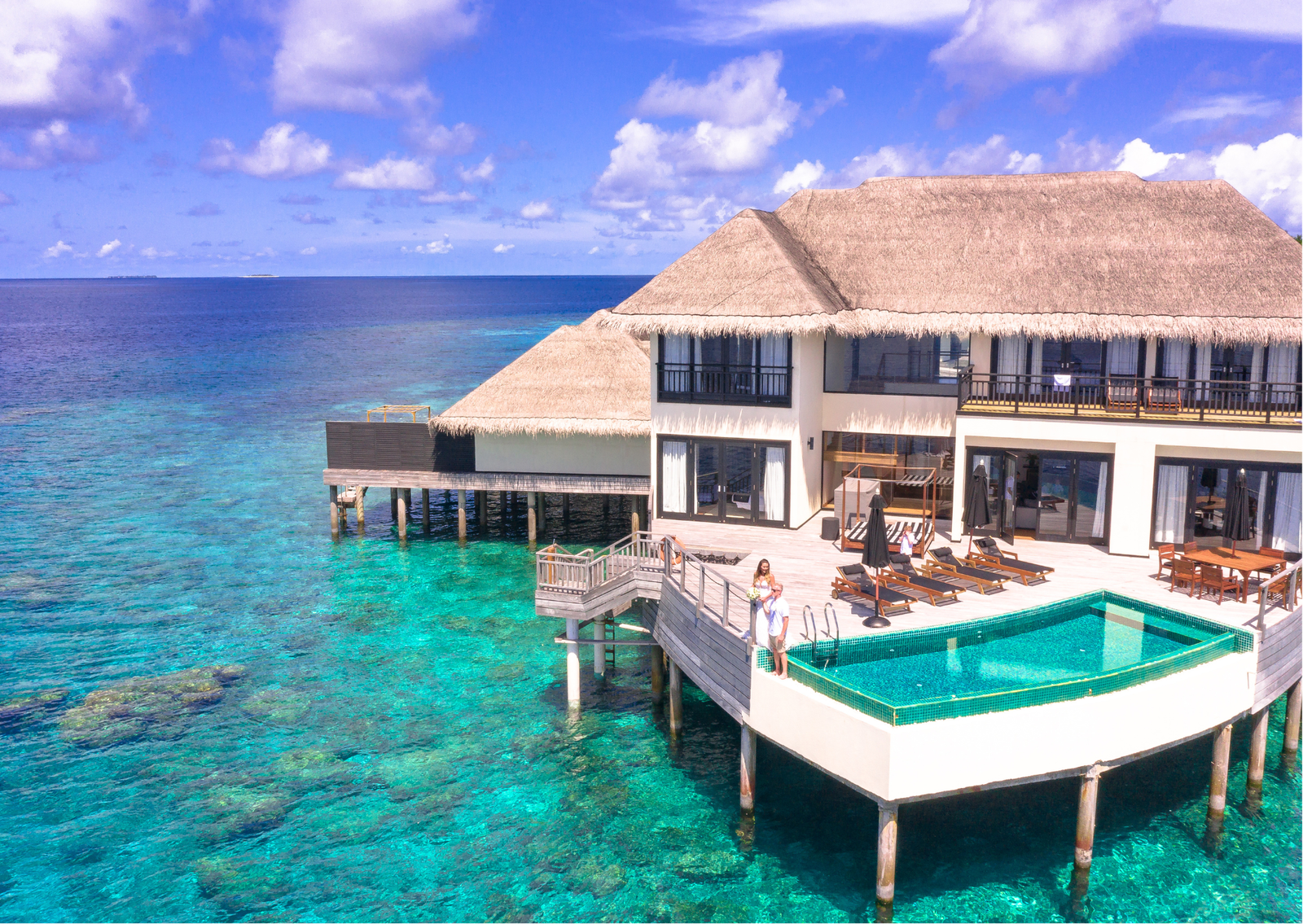
Instead of the noise of city traffic, imagine waking up to the soft sway of the ocean, the sun shining off the endless blue, and the sound of soft waves. It’s no longer a dream; it’s the new way to travel in style.
Floating hotels have slowly become more popular, changing how people enjoy both luxury and nature. They used to seem like something from the future, but now you can really book them. They are appearing in many places, from the cold rivers of Scandinavia to the warm, turquoise lagoons of Southeast Asia.
It’s not just about staying in nice places; it’s about changing how you live. Floating hotels are a nice change for people who care about the environment and want to try new things. They let you live on the water, close to nature, but still have all the comforts of home.
The First Floating Hotels
This idea isn’t brand new. For hundreds of years, people have lived and travelled on water in many places, like the houseboats in Kerala and the canals in Amsterdam. The best thing about today’s floating hotels is how they mix old ideas with new ones that are good for the environment and look great.
These motels are different from most floating homes. They are great buildings that are meant to stay strong and safe in the open sea. They usually use materials and energy sources that are good for the environment to build them. Some people even recycle their own water and make solar power, which shows that being responsible and having fun can go hand in hand. For travellers, it means enjoying the water in its most natural state without leaving a mark.
The Manta Resort on Tanzania’s Pemba Island
The Manta Resort is the best hotel that shows off the charm of floating hospitality. The Underwater Room is a small floating building off the coast of Pemba, which is Zanzibar’s quieter sister island. It is known all over the world.

You can calmly relax here, along with having a great view of the ocean. You can witness the view of the coral reef from the bedroom. At night, when the fish swim by your windows, the lights under the water draw them in. You really do sleep in the middle of the Indian Ocean, with fish and stars all around you.
Sweden’s Arctic Bath
The Arctic Bath Hotel in Sweden is a long way from tropical waters, but it has a very different kind of floating experience. The wooden building, which is located on the Lule River, the wooden building is frozen. During the time of summer, the building starts floating, and it is just the opposite in the winter, it stays still and frozen.
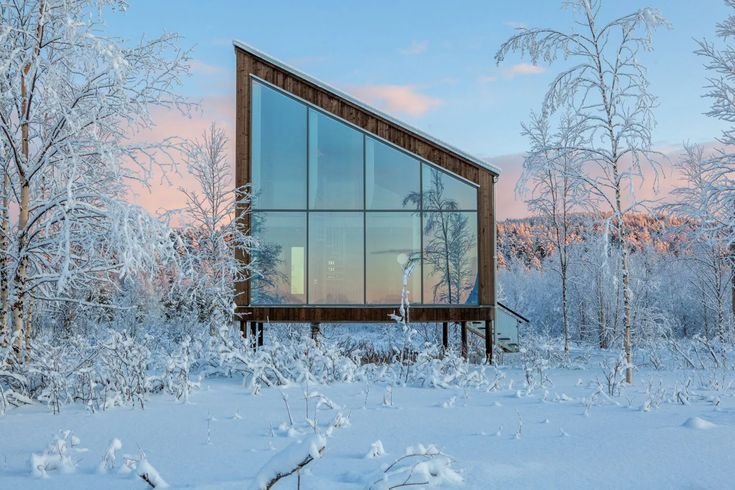
This place is famous for its health, along with the saunas, treatments of the spa, and this is all located in the middle of a very beautiful Scandinavian setting. And if you’re lucky, the northern lights might dance in the sky while you float below them.
The Punta Caracol Acqua Lodge in Panama
Punta Caracol Acqua Lodge is on Panama’s Caribbean coast and looks like a page from a book about nature. The simple wooden bungalows are on top of clear blue water and get their power from the sun. They were made with things that are good for the earth.
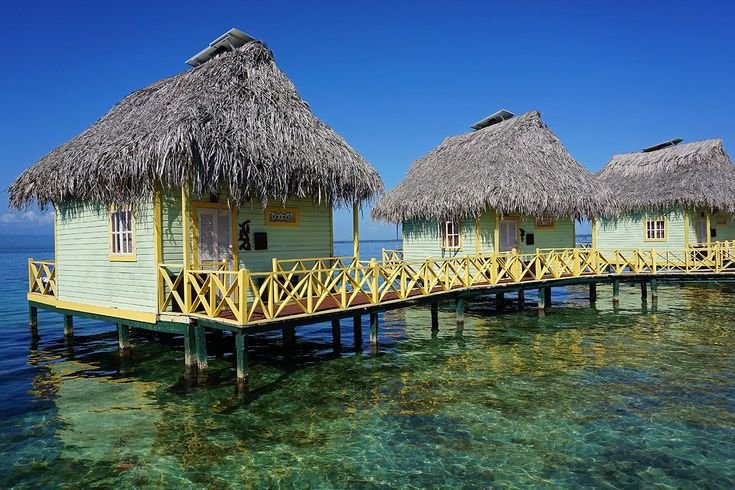
You can snorkel right from your balcony, kayak over coral reefs and fall asleep to the sound of the waves. It’s calm, simple, and very connected to nature, which is how travel should feel.
The Maldives Conrad Rangali Island
When it comes to luxury on the ocean, the Maldives is always one step ahead. But The Muraka at Conrad Maldives Rangali Island is on a whole other level, and I mean that.
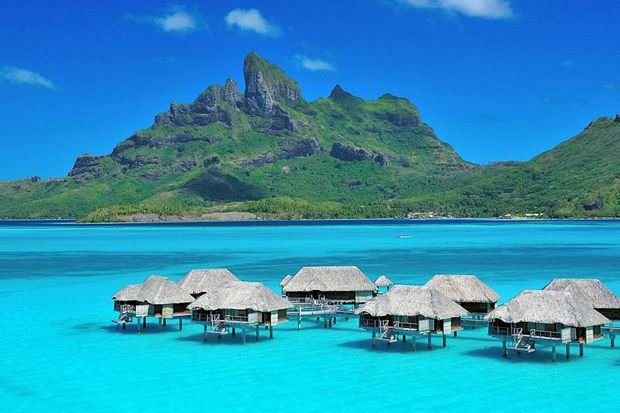
There is a bedroom in this two-story house that is underwater and full of fish and other sea life. You can get the services of a sun deck, along with a pool which is infinite pool, along with the services of a butler. The service is five stars, and you can get as close to living in a fantasy as possible.
Anthénea, France
Anthénea is a sleek pod that moves slowly along the French coast and is powered by the sun. This dome-shaped floating suite is good for the environment and easy to move. You can move it from one bay to another whenever you want or when the tide is right.
Inside, it’s all about style. There are curved furniture, big windows, and a rooftop lounge where you can relax in the sun or look at the stars. It’s the best combination of adventure, design, and being good for the environment.
Aqua Mekong in Cambodia and Vietnam
If you’ve ever wanted to explore Southeast Asia by river, Aqua Mekong might be the most elegant way to do it. This hotel on the water moves along the famous Mekong River between Vietnam and Cambodia, so guests can explore while being comfortable.
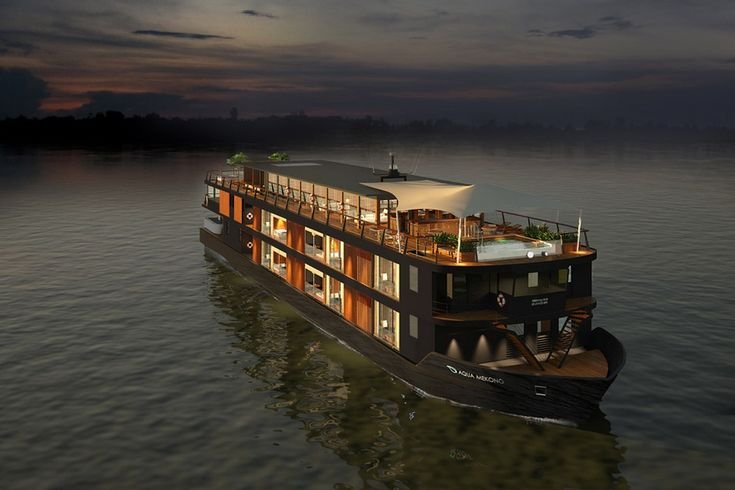
The rooms are big, there is a spa on board, and the food is based on local flavors. When you float by floating villages, green rice fields, and old temples, it feels less like you’re traveling and more like time is slowing down just for you.
The River Kwai FloatHouse in Thailand
The FloatHouse River Kwai in Thailand is a mix of local art and the calm of nature. The thatched-roof villas float peacefully down the River Kwai, hidden between mountains and jungle.
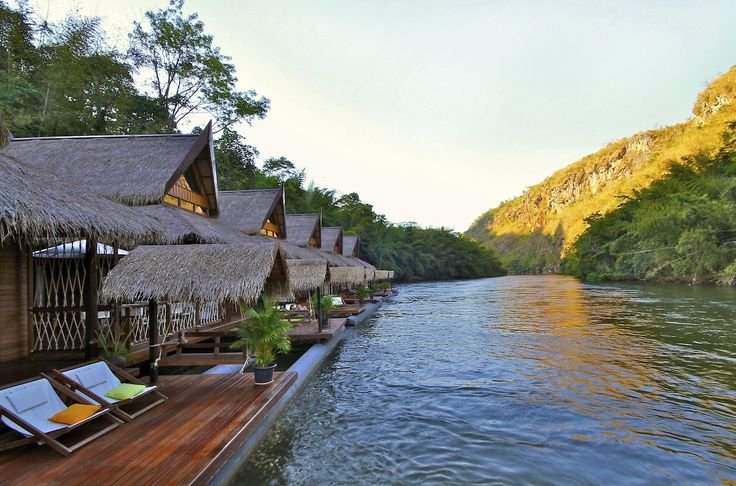
The connection to nature is just as strong as the connection to the local culture here. Visitors can go see nearby caves, waterfalls, or historical sites and then come back to the gentle sway of their floating house. It makes you feel safe and free.
Things to Know Before You Book a Floating Hotel
If this is your first time staying on water, a little planning ahead will help a lot.
- Plan when you will arrive. Before you go, check the transfer schedules because some hotels can only be reached by boat.
- Check the weather. Calm times are better for smooth stays, especially in tropical places.
- Ask about how long it will last. Look for places that use renewable energy or have been certified as being good for the environment.
- Pack your things wisely. You will be fine with light clothes, waterproof bags, and reef-safe sunscreen.
- Keep asking questions. You can kayak, snorkel, or just sit on your deck and watch the water life.
You shouldn’t just see floating hotels; you should stay in one. So, just go with the flow of the water and enjoy how easy it is.
The Issues Behind the Beauty
Of course, running a floating hotel isn’t always easy. To keep things safe, stable, and long-lasting, you have to keep working on them. Saltwater corrosion, boat rules, and bad weather all make things worse.
But these are the kinds of problems that make people come up with new ideas. Every change, from better ways to anchor things to materials that work better with solar energy, brings us closer to a time when luxury and sustainability can really go hand in hand.
Not only are floating hotels changing where we stay, but they’re also changing how we think about travel. They stand for freedom, new ideas, and getting along with nature.
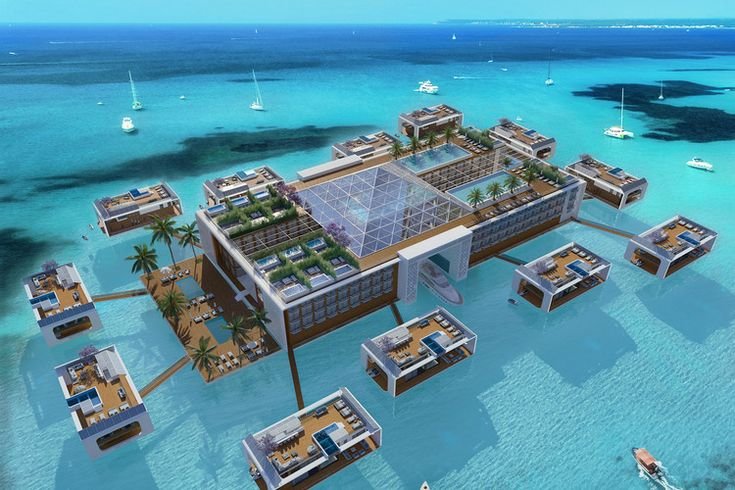
These hotels remind us that travel doesn’t have to leave a mark; it can float quietly, respectfully, and beautifully. In the Maldives, you can sleep under the sea. In Sweden, you can float between ice rivers. In Thailand, you can watch the sun set over the forests.
People are still looking for deeper, more meaningful experiences. Floating hotels are a great example of modern wanderlust, which is the desire to explore and the duty to protect.
Next time you go on a trip, instead of looking for a hotel on the beach, look for one on the water. You might find yourself moving towards the future of travel.

